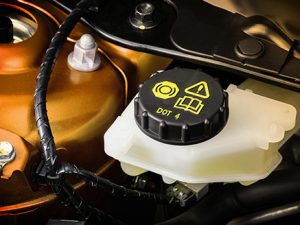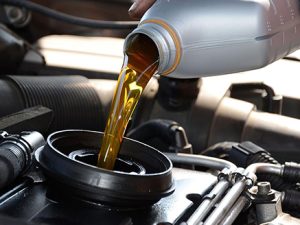When it comes to car maintenance, brake fluid is often overlooked, but it is a critical component that ensures your braking system functions correctly. Understanding its importance and how to maintain it can significantly improve your safety on the road.
What is Brake Fluid?

Brake fluid is a specially formulated liquid that transmits the force from your foot on the brake pedal to the braking components in your car. It helps your braking system convert hydraulic pressure into the friction needed to slow or stop your vehicle.
Why is Brake Fluid Important?
- Ensures Effective Braking Power: Brake fluid maintains pressure in the braking system. Without it, the force generated by pressing the brake pedal wouldn’t reach the brakes, resulting in poor or no braking at all.
- Prevents Corrosion: Brake fluid also helps to keep internal parts of the braking system free from rust and corrosion by acting as a lubricant. Regular fluid changes help maintain the system’s integrity.
- Temperature Regulation: The braking process generates a lot of heat. Brake fluid absorbs this heat to prevent the braking system from overheating, which can cause brake fade and loss of braking power.
Types of Brake Fluid
There are several different types of brake fluid, each with specific properties and compatibility. The main types include:
- DOT Fluid: The most common brake fluid in modern vehicles. It comes in different levels like DOT 3, DOT 4, and DOT 5.1, with each type having varying boiling points and performance features.
- Mineral Oil: Found in some European vehicles, mineral oil-based brake fluid is less common but still used for certain car models.
- Synthetic Brake Fluid: This type of fluid has a higher boiling point and is typically used in high-performance vehicles or vehicles driven in extreme conditions.
When Should You Change Brake Fluid?

Brake fluid can become contaminated with moisture over time, which lowers its boiling point and makes it less effective at performing its job. It is recommended to change brake fluid every 2 to 3 years, depending on your car’s make and model. Some vehicles may need it more often, especially those exposed to extreme temperatures or frequent heavy braking.
Signs That You Need to Change Brake Fluid:
- Spongy or Soft Brake Pedal: If your brake pedal feels soft or spongy when pressed, it could indicate that the brake fluid is contaminated or low.
- Poor Braking Response: If you notice a decrease in braking performance, such as longer stopping distances or less effective braking, it may be time to check your brake fluid.
- Brake Fluid Leaks: Visible puddles of brake fluid under your vehicle or around the brake lines can indicate a leak that needs immediate attention.
How to Check and Maintain Brake Fluid Levels
- Locate the Reservoir: The brake fluid reservoir is typically located near the back of the engine bay, close to the brake master cylinder.
- Check Fluid Levels: The reservoir will have minimum and maximum markers. If the fluid is below the minimum line, top it up with the recommended type of brake fluid. Be careful not to spill fluid on the paint, as it can cause damage.
- Monitor Fluid Condition: The brake fluid should be clear or light amber. If it looks dark or muddy, it’s time to replace it.
Conclusion
Brake fluid is a vital component that keeps your braking system functioning correctly and ensures safe driving. Regular checks and timely fluid changes are essential to prevent brake failure and maintain the effectiveness of your car’s brakes. Keep your braking system in top shape, and your safety on the road will be much improved!